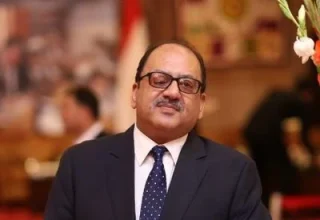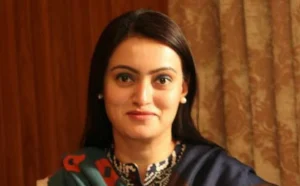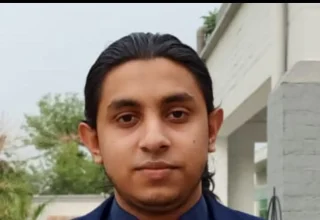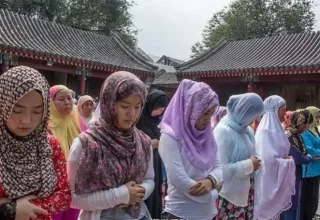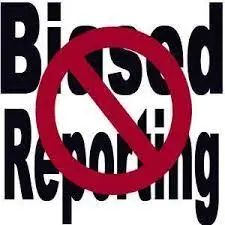 In March 2019, when a white supremacist killed 50 Muslim worshippers in a Christchurch mosque in New Zealand, their prime minister Jacinda Ardern vowed never to say the name of the gunman. Her gesture was appreciated by social scientists all over the world, who said the terrorists feel glamorized by hitting the media headlines and make their name in notoriety. Ardern made the same argument.
In March 2019, when a white supremacist killed 50 Muslim worshippers in a Christchurch mosque in New Zealand, their prime minister Jacinda Ardern vowed never to say the name of the gunman. Her gesture was appreciated by social scientists all over the world, who said the terrorists feel glamorized by hitting the media headlines and make their name in notoriety. Ardern made the same argument.
But journalists’ professional ethics demand that they name the attacker, and information about them. So, in the case of the Christchurch attack, the gunman was Australian Brenton Tarrant, 28.
Since the mosque attack, a good number of news stories and articles have been written in the international media, and all the content takes a tough line about the attacker, and the ideology that fanned hatred in him and others.
This line of treatment was, however, not taken by, BBC, an international media organization, in the case of a suicide bombing at the Karachi University on April 26, 2022, which claimed the lives of three Chinese tutors and a Pakistani driver. Within hours, a terrorist organisation claims responsibility for the attack and said that a woman, herself a teacher at a Balochistan school, carried out the suicide bombing task.
In the following days, BBC Urdu Service dedicated two pieces detailing the family background, ideology, mission and vision of the suicide bomber. “In the times of conflict, the media’s basic role is to provide voice to the victim of the violence, instead of becoming a mouthpiece of the preparators of violence,” says Dr Salam Umber, a communication teacher with a public sector university.
A close look at the BBC pieces reveals that it became the voice of the female terrorist attacker by publishing her smiling picture, dubbing her an “educated and well-groomed” woman, who was “inspired” from the ideology of terrorist groups.
The BBC Urdu Service, however, deemed it fit not to carry pieces on the Chinese deceased, who were teachers, and guests in a foreign country.
Dr Hassan Shehzad, professor of mediatization at the Islamic International University of Islamabad sees “marketed agenda” of the BBC behind the positive coverage of the suicide bomber. “Everybody knows that at the end of the day, Baloch and Seraikis will have to suffer from the system but traditional media cannot fix their problems,” he says.
“For the traditional media, there is, however, juice in stories of violence and destitution. These two elements add to the newsiness of a story. If they are not available, attempts are made to create them using modern story-telling techniques. It is called the human angle. In the case of BBC Urdu or other such international websites, no one can discount the element of international agenda.”
Other than the media, local and international human rights organizations also have ulterior agenda always. “An act of violence was done when the Chinese teachers were killed,” he said. “A thousand reasons and no amount of glamor can justify this act. Had a British national or a US citizen been killed in similar suicide attack, reportage of this incident would have been quite different by the BBC. Human rights are a reality but they are also a product for international media to sell. Commodification of human rights by media and other organizations is just like selling miseries of Balochs and Seraikis which is not acceptable. We are with all kind of victims but it does not mean that we let their miseries be marketed in any way.”
This is not the first time the BBC has furthered its agenda to interfere in Pakistan’s diplomatic and security institutions. Earlier, it published a piece on 26 November last targeting the Pakistani armed forces. The very forces which have fought the terrorist organisations for good decades, and have rendered countless sacrifices for peace in Pakistan and all over the world.
What is the way out to combat the occasional work of media houses like the BBC Urdu, which eulogize the working of suicide bombers?
Media researchers and academics say the elements of peace journalism are applied while reporting in the areas of conflict.
Dr Jake Lynch and Annabel McGoldrick write in their book, Peace Journalism, that peace journalism “… create opportunities for society at large to consider and value non-violent responses to conflict”. They write that peace journalism “uses the insights of conflict analysis and transformation to update the concepts of balance, fairness and accuracy in reporting. It also provides a new road map tracing the connections between journalists, their sources, the stories they cover and the consequences of their journalism, and builds an awareness of nonviolence and creativity into the practical job of everyday editing and reporting.”
Hopefully, the BBC Urdu Service will arrange a course for its staffers on peace journalism.
The writer can be reached at: farooq.azam.awan@gmail.com.










